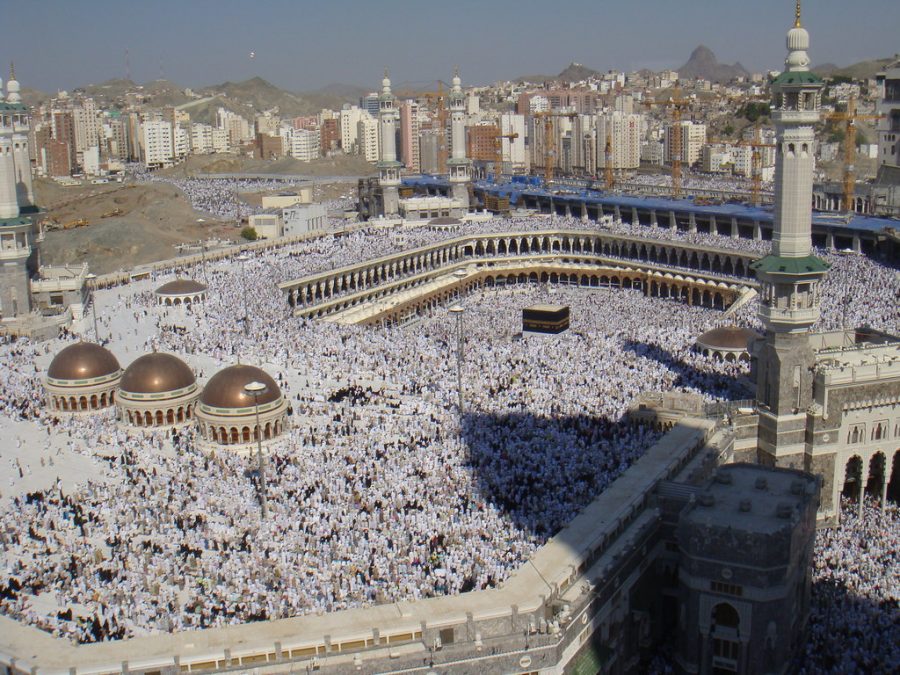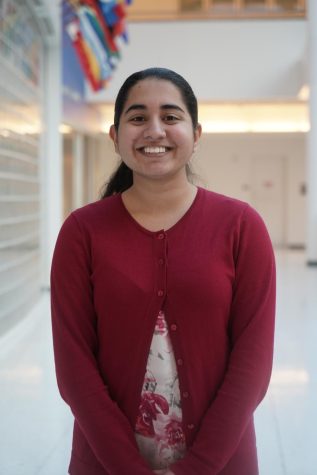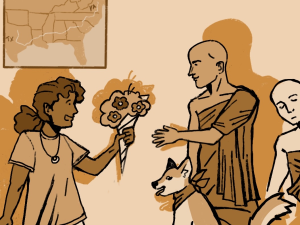Saudi Arabia requires COVID-19 vaccine for hajj
March 12, 2021
Saudi Arabia announced that a COVID-19 vaccination is mandatory for hajj participants this year. Those unable to comply will not be allowed to make the pilgrimage.
In 2020, hajj was limited to about 1,000 people who were already living in Saudi Arabia. The restriction was put in place to mitigate the spread of the coronavirus, but it was the first time in modern times that outsiders were not allowed.
With several COVID-19 vaccines authorized for use, including Pfizer, Moderna, AstraZeneca and, most recently, Johnson & Johnson, Saudi Arabia is willing to allow more pilgrims this year if they are vaccinated.
“The COVID-19 vaccine is mandatory for those willing to come to the hajj and will be one of the main conditions (for receiving a permit to come),” according to a circular signed by the Saudi health minister.
For those unfamiliar with the religion, there are five pillars of Islam. One is the shahadah, or declaring one’s faith by saying there is one God, referred to as Allah, and the Prophet Muhammad (peace be upon Him) is the messenger of Allah.
The others include performing salah, or praying five times a day, zakat or alms-giving, fasting during Ramadan with exceptions for the elderly, sick or pregnant, and hajj.
Muslims who are financially and physically capable of performing the pilgrimage to the city of Mecca during the final month of the Islamic calendar, Dhul-Hijjah, must do so at least once in their life. Hence, in 2019, over two million Muslims journeyed to Mecca for hajj.
When numbers were significantly reduced last year, Muslims were struck with grief.
“The hajj is a transformative, emotional and spiritually moving experience — the spiritual pinnacle of a devout Muslim’s life,” Yasir Qadhi, dean of the Islamic Seminary of America, said.
Following Saudi Arabia’s decision last year, there was a “sense of deflation and spiritual loss, and a great sadness,” he had said.
An Egyptian school administrator named Zeinab Ibrahim had even been brought to tears over the news.
“It was my only wish,” Ibrahim said. “To cancel it completely is such a shame. May God relieve us of this burden.”
With Saudi Arabia allowing hajj this year, millions of Muslims could potentially be able to fulfill their religious duty.
Still, there have been issues with getting vaccines to Muslim countries.
Supreme leader of Iran Ayatollah Ali Khamenei forbade vaccines from the United States and the United Kingdom, two nations that Iran has not had a good past with, to say the least.
“They are completely untrustworthy,” he said. “If they were able to create a vaccine…Why do they want to give it to us? Why don’t they use it themselves?”
Professor Atta Ur Rahman, the head of Pakistan’s Task Force on Science and Technology, had stated that the Pfizer vaccine is not suitable for Pakistan.
“This is a messenger RNA vaccine and it has to be transported at -80°C, so this vaccine is not suited for developing countries,” Rahman said. “The cold storage infrastructure and chains to take this from the airport across the cities and across the countries are missing in the developing world,” he explained.
There has also been apprehension on the part of some Muslims who worry whether the COVID19 vaccines are halal or not, but members of the Islamic community have been trying to put these worries to rest.
For instance, some mosques have used Fridays to educate Muslims on COVID-19 and the vaccine. Some imams, or religious leaders, have also recorded themselves on camera to prove that vaccines are trustworthy.
“MINAB strongly recommends people to take the vaccines. The COVID vaccines administered in the UK are halal, permissible from Islamic perspective, and there should be no hesitation in taking them from a moral perspective,” Imam Qari Asim, chair of the Mosque and Imams National Advisory Board, said.
Pfizer-BioNTech, Moderna and Oxford-AstraZeneca have even stated their vaccines “contain no animal derivatives, and stamps of approval have come from the British Islamic Medical Association, the Assembly of Muslim Jurists of America and the grand mufti of Saudi Arabia,” according to The Guardian.
Currently, there is no specific data on the number of Muslims vaccinated for COVID-19 in the world.t Based on previous instances where hajj attendees came in droves despite public outbreaks, it is possible to say that many Muslims will be making the pilgrimage this year.
During a yellow fever outbreak in 2005, pilgrims from countries at risk of the illness had to provide proof that they had been vaccinated against it in the form of a yellow fever vaccination certificate.
In that same year, 2,258,050 people performed Hajj, despite the outbreak.
Those yellow fever certificates are similar to vaccine passports some countries are now requiring for global travel, which Saudi Arabia may require as well.
“Stored on a phone or digital wallet, the data is typically presented as a QR code and also can show if a person has tested negative for a virus,” according to CNBC.
Saudi Arabia has not announced the quota for hajj this year, though they might “allow just 25% of the quota due to COVID,” The Times of India reported.
Regardless, if outbreaks such as yellow fever, MERS–COV and polio in the past two decades are any indication, Saudi Arabia’s quota will likely be met to full capacity.









Madina Harmain • Jan 6, 2023 at 9:22 am
Great!